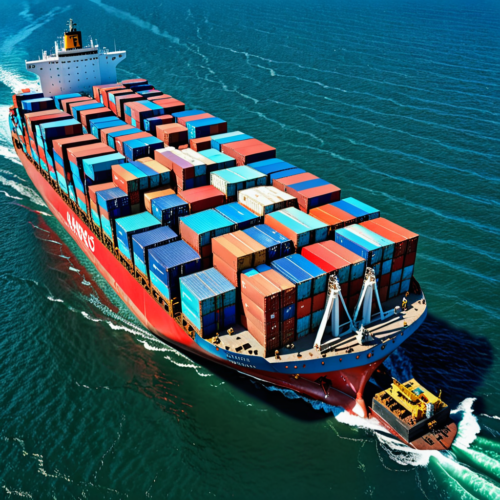Table of Contents
- Introduction
- What Are Freight Rates?
- Factors That Influence Freight Rates
- How to Get the Best Freight Rates
- Conclusion
Introduction
In the logistics and transportation industry, freight rates play a crucial role in determining shipping costs. Whether you’re a freight broker, shipper, or business owner, understanding how freight rates are calculated can help you save money and optimize your supply chain. In this guide, we’ll dive into what freight rates are, the factors that influence them, and how you can secure the best rates for your shipping needs.
What Are Freight Rates?
Freight rates are the charges applied by carriers to transport goods from one location to another. These rates can vary widely depending on several factors, including the mode of transportation, the distance traveled, and the type of goods being shipped. Understanding rates is essential for anyone involved in shipping, as they directly impact the cost of moving goods and, ultimately, the bottom line.
Factors That Influence Freight Rates
Several key factors influence rates, and being aware of these can help you better predict and manage your shipping costs:
- Mode of Transportation: Whether your goods are shipped by truck, train, ship, or plane will significantly affect the freight rate. Air freight is typically the most expensive, while ocean freight can be more cost-effective for large shipments.
- Distance: The farther your goods need to travel, the higher the freight rate. Long-distance shipments require more resources, such as fuel and labor, which increases costs.
- Weight and Volume: Heavier and larger shipments cost more to transport. Rates are often calculated based on the weight or volume of the goods, whichever is greater.
- Freight Class: In the U.S., freight class is a classification system used to determine shipping costs. It’s based on factors like density, stowability, handling, and liability. Understanding your freight class can help you avoid overpaying.
- Fuel Surcharges: Fluctuations in fuel prices can lead to additional charges on top of the base freight rate. Fuel surcharges are common in the industry and can vary depending on current fuel costs.
- Seasonality: Demand for freight services can increase during certain times of the year, such as holidays or harvest seasons. This increased demand can drive up freight rates.
- Supply and Demand: Like any market, supply and demand play a significant role in determining freight rates. High demand for shipping services or limited carrier availability can lead to higher rates.
For more insights on how these factors affect freight rates, check out resources like Freightos and DAT Freight & Analytics.
How to Get the Best Freight Rates
Securing competitive freight rates requires a strategic approach. Here are some tips to help you get the best rates for your shipping needs:
- Negotiate with Carriers: Building strong relationships with carriers can give you leverage when negotiating freight rates. Don’t hesitate to ask for discounts, especially if you’re shipping large volumes or have regular shipments.
- Compare Quotes: Don’t settle for the first quote you receive. Use online freight marketplaces like Freightos or uShip to compare rates from different carriers. This can help you find the most cost-effective option.
- Consolidate Shipments: If possible, consolidate smaller shipments into larger ones. Carriers often offer better rates for full truckload (FTL) or full container load (FCL) shipments compared to less-than-truckload (LTL) or less-than-container load (LCL) shipments.
- Plan Ahead: Last-minute shipments tend to be more expensive. Plan your shipments well in advance to secure better rates and avoid rush fees.
- Use Freight Brokers: Freight brokers can help you navigate the complexities of shipping and secure competitive rates. They have access to a network of carriers and can often negotiate better deals on your behalf.
- Optimize Your Packaging: Efficient packaging can reduce the volume and weight of your shipment, leading to lower freight rates. Consider using lightweight materials and minimizing excess packaging.
By following these tips, you can effectively manage your shipping costs and ensure you’re getting the best possible freight rates.
Conclusion
Understanding freight rates is essential for anyone involved in shipping and logistics. By familiarizing yourself with the factors that influence these rates and implementing strategies to secure the best rates, you can optimize your shipping operations and reduce costs. Whether you’re negotiating with carriers, comparing quotes, or planning ahead, being proactive about managing freight rates will help you save money and improve your bottom line.
For more detailed information on freight rates and how to manage them, explore resources like Findfreightloads, Freightos and DAT Freight & Analytics.our shipments to chance; invest in cargo insurance today and safeguard your business against potential losses.
Growth + Change = Opportunity!



